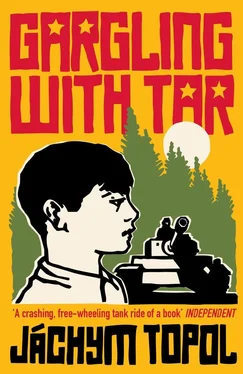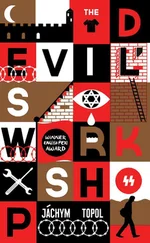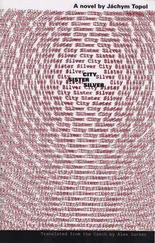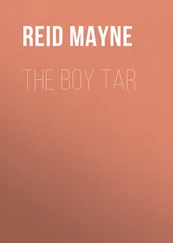It was clear to me that if Captain Yegorov realized that I was deceiving him, he would stop liking me. I didn’t want things to go that far. It also occurred to me that I might fit in better at Dago’s circus. Who so artfully dodged all those chain-clanking bulls? Who knew how to reduce a slavering village hound to groaning submission with a swift kick to the jaw? Who used to cart buckets of slops out to the sows that would eat anything? And who could communicate with a little horse harnessed to a sleigh? It wouldn’t be work at all, dealing with animals again. I was desperately looking forward to meeting the circus. Everyone was.
But it came to nothing.
It was like this. Originally, the ‘Happy Song’ tank column simply put down pockets of resistance, then restocked with food from these captured positions. But things changed. Now we attacked every building we encountered, and because the Czechs wouldn’t voluntarily give us even a glass of water, it was best to take everything they had.
We went straight in with the tanks, because the efforts of our supply squads had proved a failure. As far as I could tell from the level-headed musings of Gunner Timosha, the Soviet supply squads sent into the villages and hamlets of Chapman Forest often came back with less than they had gone with, and their haul might be no more than a couple of jars or tins, and it wasn’t unheard of for them not to come back at all, and for the tank column to be surprised the next day by being cut off and fired upon by the valuable semi-automatic weapons taken from our dead soldiers.
Yet we had no way of stocking our field kitchen other than by stealing from Czech pantries. So our tanks always set an enemy building or whole village on fire first, then we would burst into the captured building or smouldering ruins of the village and grab anything that could be carried away, including water.
And we completely ignored the reports coming from the Radio Free Siřem transmitter.
And we also ignored the eyes in the forest, the entire forest having become bandit territory, and while we were still lords and masters of the roads and lanes, the forest was full of people who were watching us and meant us harm.
And we ignored the fact that painted on the white walls of houses and cottages, or on the tarmac of roads and lanes, were skull and crossbones symbols smirking at us, and that we were also being vilified everywhere by signs and insults scrawled in Russian.
For Dago this was all new. Until the rebellion had begun, his circus had experienced only triumph and lots of bouquets and applause. The Hygea Circus had travelled from place to place as an ordinary socialist circus.
From what Dago said, I gathered that the situation had changed after the East German People’s Army entered Czechoslovakia alongside the other Warsaw Pact armies to turn rebellious Czechoslovakia into a Soviet satellite. The circus, now under the protection of our East German comrades, headed for the Siřem zone, where it met with the full force of the uprising.
The migration of our column through the Bohemian countryside had been a battle. I’ve mentioned that often enough. But Dago was not used to a situation of relentless hostilities. I saw him cower in terror when we had to abandon our cosy nest on the front hull as the shrapnel rained down, and we eliminated the bandits who had carried out the assault with a recoilless gun.
The village near to where we’d been attacked was marked on my maps as Luka.
I stayed by the cowering and ever-shrinking Dago, while our sub-machine-gunners burst into the village. Dago made more baby noises and the only bit of him I could see properly was his huge head. We waited on the tank for the marauders to come back. We had nothing else to do.
I swore a lot and thumped my fist on the armour plating. I had no Kalashnikov, nothing! Little Dago trembled beside me, and it struck me that whenever he was afraid he shrank, whereas I grew bigger. I was growing. Several times already I’d had to loosen the pins on my uniform. I was on military rations and I always ate everything.
‘Let’s run away!’ cried Dago suddenly and, back to his normal small size, he slithered over the tank and entered the woods. I walked around the tank and set off after him, as if he were leading the way.
Was I pursuing a fugitive or doing a runner? That depended on who was asking the question, I decided. We walked quickly, very soon coming upon a footpath in the forest, and my heart pounded for joy at the prospect of having escaped at last.
We were in a clearing surrounded by the fence of an animal enclosure. We planned to dash across it and disappear into the forest. I was ready to strip off my Soviet uniform, because this was bandit territory.
I was about to clamber over the stakes of the fence — Dago was all right, he could crawl under them — when I stopped: the dwarf was kneeling in the grass, pointing at the fence.
The stakes looked a bit strange. The long spotted legs of some animal had been nailed to the crossbars of the enclosure, and I was staring at a nail in one of the hooves; another nail went through a joint in the long leg, and where stakes should have been there were a total of four long, weirdly twisted legs. Then I got a whiff of something: just a little way off in the grass there was the body of a large animal. I’d never seen one like that before. It was so huge that I might easily have mistaken it for a pile of blotched stones.
But it was a dead animal, covered in scars and scratches. I could hear birds scratching all over the wood of the enclosure, and because me and Dago were so still, the birds were climbing on the corpse, sitting on it and pecking at it.
Dago shuffled off and picked something out of the grass, then carried it back to me. It was a giraffe’s head. He went back across the clearing and I followed. A giraffe’s face is a bit like a roebuck’s, though its ears are quite different, I can tell you.
We didn’t speak. We went back towards the tank column. All we could hear was the odd round being let off, not sustained firing, and in no time we were back. We clambered onto the rags of my snug at the front of the hull, saying nothing. ‘Did you know the giraffe?’ I asked. ‘ Da ,’ said Dago. We didn’t run away that day after all.
Despite the success of the battle for Luka, the tank crews were glum, because the recoilless gun that had attacked them was part of the ordnance of the East German army.
Willy Dagobert was once again subjected to interrogation, but this time friendly and informal. Even I was present. Nothing new was discovered.
Dago talked at length about the charms of the bareback riders, and the grace and beauty of the circus girls, and he liked talking about the flowers and fruit showered upon him in the towns and villages that the Hygea Circus had passed through, and where he, Dago, had performed, although he was unable to give the exact position of the circus. He couldn’t even provide a satisfactory statement of the manpower and ordnance of the East German People’s Army units that were acting as the Hygea Circus’s military overseers.
Whenever the amiable NCOs mentioned, in the course of the informal interrogation, the fact that the situation now involved fighting, Dago began squawking and crying, whining and shrinking into himself, making the NCOs less amiable. Dago refused to surrender the giraffe’s head to anyone other than Captain Yegorov, biting and scratching several lower-ranking officers in the process. After which he was bound and left in my care on the front hull of my tank.
Earlier, during the interrogation, the giraffe’s head had been entrusted to me. Under the watchful eye of gunners Timosha and Kantariya I had carried it the length of the tank column to the supply pickups. One of the drivers held the tarpaulin aside and I saw Captain Yegorov’s sacks, and I saw some corpses. The corpses in the pickup were in the same kind of sack as Captain Yegorov’s treasures. The sacks kept the corpses in one piece. The soldiers of the tank column would put their fallen comrades under the pickup’s tarpaulin for safekeeping. Gunner Timosha gave me a prod and I stowed the giraffe’s head under the tarpaulin. So now the pickups with our fallen comrades were no longer a secret to me. I knew the Soviet soldiers trusted me.
Читать дальше












